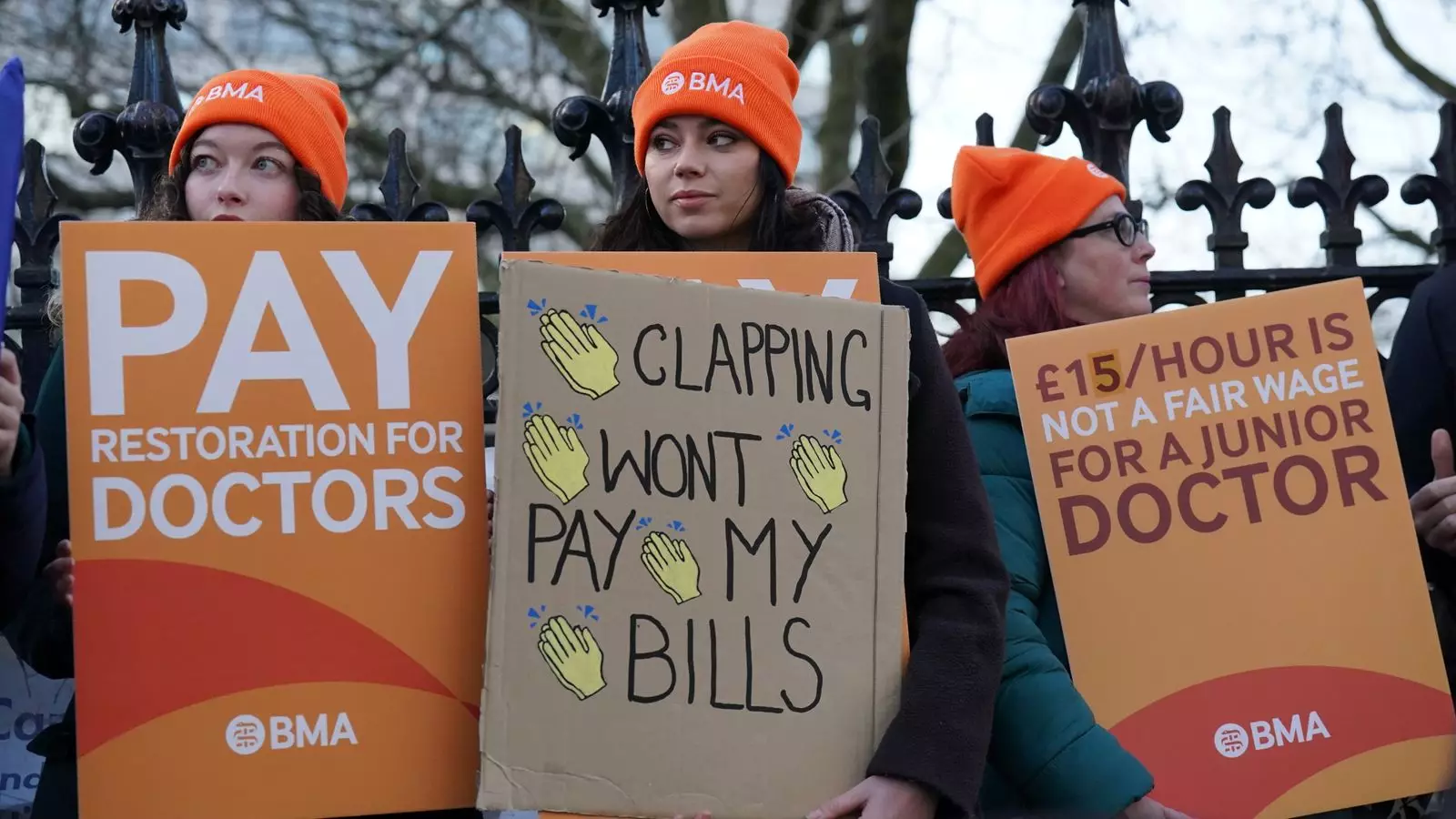The junior doctors’ strike in NHS trusts across England has sparked critical incidents and concerns about patient safety. The six-day walkout, being the longest in NHS history, is led by junior doctors who are members of the British Medical Association and is centered around pay disputes. This article critically examines the impact of the strike and the challenges it poses to the healthcare system.
Several NHS trusts in England, including Lewisham and Greenwich, Nottingham and Nottinghamshire, and Portsmouth Hospitals University, have declared critical incidents due to the strike. These trusts face high levels of patient demand and are struggling to cope with the increased workload caused by the absence of junior doctors. The strike’s timing, coinciding with a typically busy week, has further exacerbated the challenges faced by these trusts.
The absence of additional doctors during the strike has raised concerns about patient safety. The Lewisham and Greenwich NHS Trust has submitted a “safety mitigation request” in order to address the shortage of doctors in its hospitals. This situation highlights the need for additional staffing to ensure the provision of quality care during the strike period.
The medical director at NHS Nottingham and Nottinghamshire, Dr. Dave Briggs, has advised the public to only visit the accident and emergency (A&E) department in case of life-threatening illnesses or injuries. With long waiting times due to the strike, Dr. Briggs suggests self-care as an alternative for minor conditions such as coughs and colds. If self-care is not possible, individuals are encouraged to contact the non-emergency helpline, NHS 111.
The Portsmouth Hospitals University NHS Trust has declared a critical incident due to a combination of delays and increased demand for services. The hospital is already facing difficulties following bank holiday weekends, rising winter pressures, and low staffing levels in the emergency department. The trust emphasizes the importance of support from the community to ensure continued provision of necessary healthcare services.
A number of hospitals have submitted derogation requests, urging doctors to return to work during the strike. These requests have faced rejection, with only one remaining under consideration by the union. The rejection of derogation requests puts further strain on the healthcare system, as it struggles to cope with the absence of junior doctors.
The pay cuts inflicted on junior doctors since 2008 have been a core issue in the strike. The British Medical Association rejected an 8.8% pay rise and an additional 3% offer made last year, claiming that it fails to compensate for the real-term pay cut of 26.1% experienced by junior doctors. The union is advocating for a full pay restoration and the introduction of a mechanism to prevent future pay decreases in relation to cost of living.
The junior doctors’ strike has created critical incidents in several NHS trusts, raising concerns about patient safety and the strain on healthcare services. The absence of junior doctors and the rejection of derogation requests deepen the challenges faced by the healthcare system during this prolonged strike. It is crucial for all stakeholders to engage in meaningful dialogue to address the demands of junior doctors and ensure the provision of high-quality healthcare services.

Leave a Reply